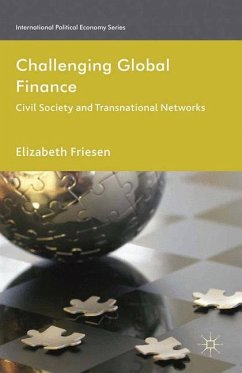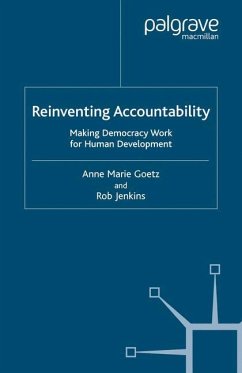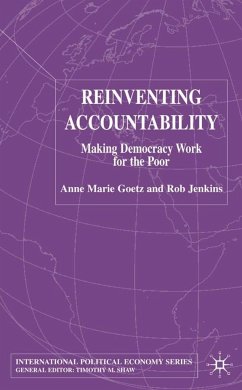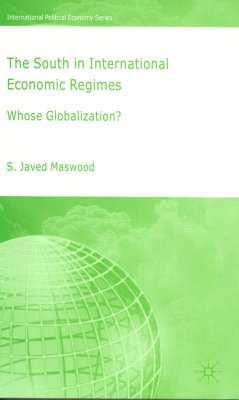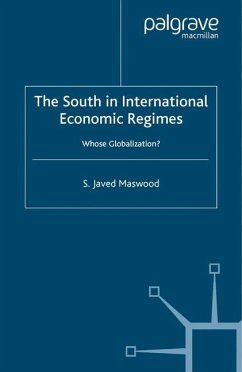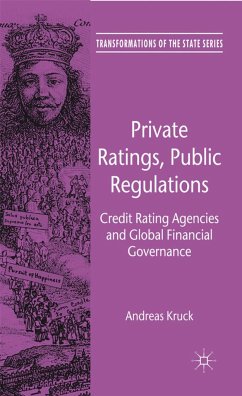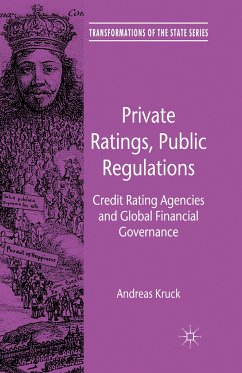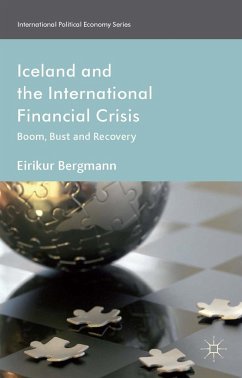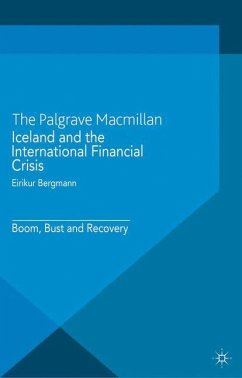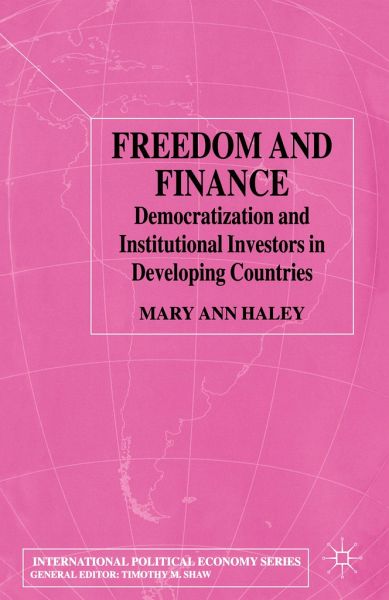
Freedom and Finance
Democratization and Institutional Investors in Developing Countries

PAYBACK Punkte
38 °P sammeln!
Within a decade, private capital surpassed aid as the primary capital source for developing countries. This book explores how the increase of private funds, in particular portfolio capital, effects democratization in developing countries. A probe into institutional investors' coordination, asset concentration, political preferences, and activism, provides a framework for understanding the politics of international financial constraints. Highlighting the dilemma presented by international finance's simultaneous emphasis on austerity and stability, the question of whether this public-to-private ...
Within a decade, private capital surpassed aid as the primary capital source for developing countries. This book explores how the increase of private funds, in particular portfolio capital, effects democratization in developing countries. A probe into institutional investors' coordination, asset concentration, political preferences, and activism, provides a framework for understanding the politics of international financial constraints. Highlighting the dilemma presented by international finance's simultaneous emphasis on austerity and stability, the question of whether this public-to-private shift might facilitate an anti-democratic strain is examined.




